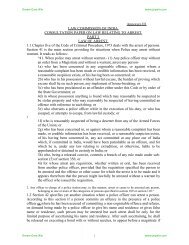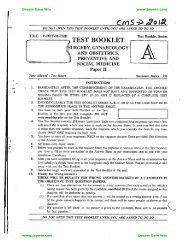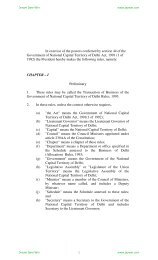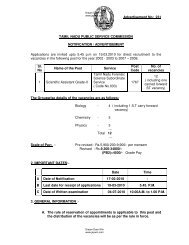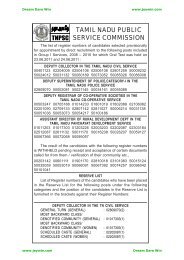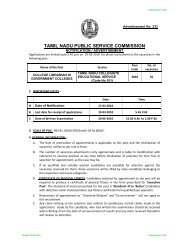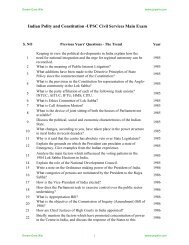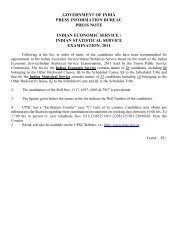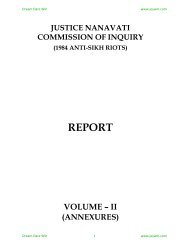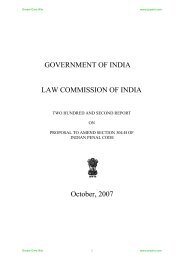DOPT AR 0607 English Print.pmd - Jeywin
DOPT AR 0607 English Print.pmd - Jeywin
DOPT AR 0607 English Print.pmd - Jeywin
Create successful ePaper yourself
Turn your PDF publications into a flip-book with our unique Google optimized e-Paper software.
MINISTRY OF PERSONNEL, PUBLIC GRIEVANCES & PENSIONS<br />
CHAPTER - 12<br />
THE RIGHT TO INFORMATION ACT, 2005<br />
12.1 Right to Information is implicitly guaranteed by the Constitution. Nevertheless,<br />
recognizing a need for setting out a practical regime for securing information by<br />
citizens from the public authorities and to promote transparency and accountability<br />
in the working of all public authorities, the Right to Information Act was enacted in<br />
2005. The law is comprehensive and covers disclosure of information on almost<br />
all matters of governance. It is applicable to the government at all levels- union,<br />
state and local and also to the bodies owned, controlled or substantially financed<br />
directly or indirectly by the government. It covers all legislative bodies, the judiciary,<br />
the executive and all Constitutional bodies.<br />
12.2 The Act applies a two pronged strategy for dissemination of information. It casts an<br />
obligation on public authorities for suo moto disclosure/publication of large amount<br />
of information. It also requires the public authorities to supply information called for<br />
by any citizen and to permit him to inspect the documents and collect samples of<br />
various works. The procedure for seeking information is very simple. A person<br />
seeking information has to make a request to the concerned Public Information<br />
Officer indicating the information is to be had and the address at which the<br />
information is required. The request may be sent either by post or submitted in<br />
person. It can be made in Hindi or <strong>English</strong> or in the official language of the area and<br />
can also be sent through email.<br />
12.3 The Act creates an elaborate machinery to ensure supply of information which<br />
consists of Public Information Officers, Assistant Public Information Officers,<br />
independent Central Information Commission and State Information Commissions,<br />
etc.<br />
12.4 The Act requires supply of information on a time bound basis. A Public Information<br />
Officer is required to send information called for at the specified address within 30<br />
days. In case of information concerning the life or liberty of a person, the information<br />
is provided within forty eight hours. If the information is not provided within the<br />
prescribed period, the Act has a provision for imposition of stringent penalty on the<br />
Public Information Officer. The Public Information Officer may have to pay a penalty<br />
of Rs.250 per day of delay subject to a maximum penalty of Rs. 25,000/-.<br />
102



